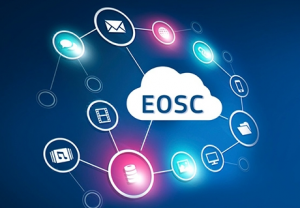European Open Science Cloud provides support to fight Covid-19
EOSCsecretariat.eu addresses the needs for the set-up of an operational framework supporting the overall governance of the EOSC (European Open Science Cloud). It maintains a practical approach to address all specific needs of the coordination structure expected by the EOSC. It retains a high degree of flexibility in its roll-out plan by adopting a co-creation approach, founded on a substantial budget left available for upcoming challenges.
Funding opportunities
In response to stakeholders’ engagement, the EOSC Secretariat introduces funding opportunities that will be fast-tracked at these challenging times. Individuals and legal entities residing in the EU Member States, outermost regions and the Associated Countries with no other support from other instruments (EU or national research infrastructure projects) for proposed activities that are not being funded from other sources for an identical activity are eligible to apply for the co-creation budget.
Full application guideline including definition of eligibility cost and the application form are accessible from the EOSC secretariat web page.
Activities and actions that deploy open science methods and resources and make use of the EOSC communities in order to address Covid-19 related issues might cover:
- Opening up virus related research and data;
- Sharing of infrastructures and services;
- Developing open design equipment for fighting Covid-19;
- Sharing sampling test methodologies and data;
- Developing open methodologies, services, software and infrastructures for sharing data, practices and knowledge in relation to the development and treatment of Covid-19;
- Developing open science methodologies for monitoring the spread of Covid-19;
- Developing open-science / evidence-based methodologies for the development of epidemic combating policies;
- Accessing and combining open data not only to eradicate the virus but learn how to deal with similar viruses and future outbreaks;
- Assessing the validity of epidemic information in relation to the virus by ensuring that its sources can be traced and verified;
- Other open science activities / actions related to the fighting of epidemics and pandemics.
Understanding of Covid-19 pandemic as challenge of the open data science
Currently, the common challenge of the highest priority is the fight against Covid-19. The health sector has been doing its best to provide care as much as possible. Nevertheless, according to the Italian and Spanish experiences, with increasing numbers of patients facing severe symptoms, the public health sector is becoming exhausted regarding labor as well as material resources. The entire world hope that the numbers will start to decline soon. Unfortunately, it is unknown when this will be reached and if we will face the similar situation in the future again. The development of new diagnostics, treatments and vaccine take a long time and the current situation is progressing fast. To accelerate the biomedical research work, open scientific data on the virus is of high value.
Sharing live on-the-ground data on spread of the virus, as well as software, standards and processes for monitoring Covid-19 treatment and development might be helpful. Access and combination of data is very useful for eradicate the virus, as well as to uncover how to deal with similar viruses and future outbreaks. Furthermore, the validity of epidemic information in relation to the virus can be assessed. This will allow to trace and verify its source.
The past weeks have seen the European scientific community’s answer to the Covid-19 pandemic. European institutions have signed the Welcome Trust’s Statement on Data Sharing in Public Health Emergencies agreeing to put all the relevant Covid-19 research to open access. Research findings are available before peer-review. World Health Organization (WHO) has rapid access to emerging findings in form of interim and final research data on the outbreak that could aid the global response.
